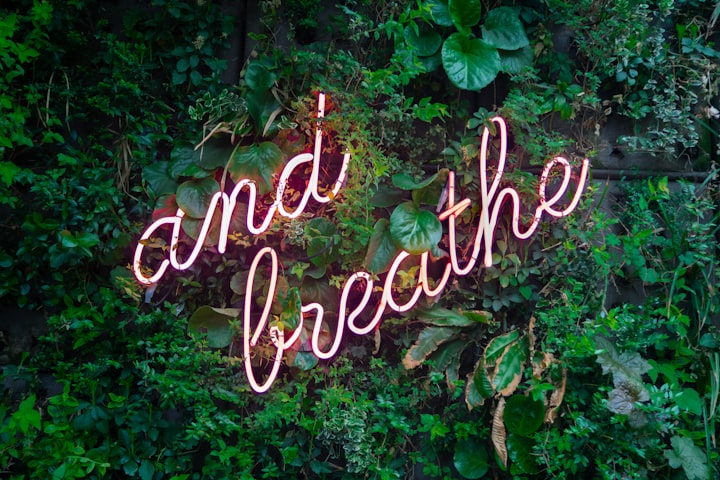
If you’ve ever suffered with Anxiety and Depression you’ll know they go hand in hand to form a vicious cycle. I suffered on and off for 15 years and remained undiagnosed by Doctors for years. After a few years of very intense battles with anxiety, depression and chronic fatigue, I decided to deeply research, study and test out ways to help/manage and cure these conditions.
I found that most of the help out there took up too much energy/effort or time. This deterred me from getting a lot of help I needed when I really needed it. So jumping right in, here are a few steps you can do from anywhere, anytime any place at your own pace.
Quick summary of the steps (For those currently suffering)

1. Make a list of all of your daily responsibilities and begin to cut them down to the absolutely necessary. Lower the number of tasks you need to do each day.
2. Tick the ones that absolutely must be done and focus on those but pace yourself. If you don’t have the energy to do all your tasks today, offload into another day. Keep the amount of things you need to think about to a manageable level.
3. Give yourself a break (literally & figuratively). I can’t stress enough how important it is to rest and recharge not just your body but your mind too. Thinking uses up energy too so we must remember to manage our mental health and switch off periodically to recharge. You wouldn’t start trying to do a load of things on a phone with 1% battery, you’d charge the phone up 1st right? The same applies to your “mental” battery.
3 Steps to Help With Anxiety & Depression
Are you now in the present moment? Don’t focus on negative situations or actions you were involved in previously. You can’t change what’s already happened. What can you do right now as in right now/today?

Step 1: Write down all of your daily responsibilities
Write down all of your daily responsibilities. Do one for list for weekdays and another for weekends. Did you add sleep, rest/relax and laugh? It’s your responsibility to sleep, to rest or recharge yourself each day. Currently In 2020 we are surrounded by different kinds of overstimulation. Car traffic sounds, screens everywhere, adverts on all devices, social media platforms and more. It’s important to find time to relax to de-stress.

Constant stimulation adds a constant stress to your mental which over time wears you out, This often can lead to a burn out, depression or various other things like Asthma, IBS. Stress is the root cause of many illnesses, however doctors standard procedure today seems to be blood tests and ECG’s which can’t really detect things like depression a far as I know.

You don’t always realise the health decline as it can be subconscious,buried in your mind. You automatically adjust so you feel the same until your health/energy reaches a critically low depressed state. At this point you can become physically ill, mentally ill/unstable or both. Then you are “sick, unwell and need help”. It can lead you to taking intoxicants, seeking an escape from the feeling of depression or pain. These intoxicants give a temporary escape but also contribute to the health decline as they can cause you to give yourself less of what you need.

For example some drugs can cause you to continue an activity long past your physical limits which stresses your body. When the drugs wear off, the lack of sleep or tired muscles will catch up and leave you feeling worse than before. So while you temporarily felt good now the feelings gone you feel worse than before almost a paradox of sorts.
Your physical and mental health also are top priority not just your responsibilities. You can’t do any of your daily responsibilities with poor health. You simply just wouldn’t manage and that is the point. Take care of your body AND your mind.
Step 2: Tick the ones that absolutely must be done
Tick the ones that absolutely must be done. Weekends should be as free as possible to allow you time to relax, sleep, be social and destress before doing another 5 days of days with a higher number of responsibilities.

Over time try to streamline your daily responsibilities to a lighter list. You can spread responsibilities across days to even the workload out. This will help you to not overload yourself leading to a balance.
Step 3: Give Yourself a Break!
Give yourself a break (literally & figuratively). I can’t stress enough how important it is to rest and recharge not just your body but your mind too.

Thinking uses up energy too so we must remember to manage our mental health and switch off periodically to recharge. You wouldn’t start trying to do a load of things on a phone with 1% battery, you’d charge the phone up 1st right? The same applies to your “mental” battery.
Take a good look in the mirror, recognise but most importantly “accept the good and the bad” part of who you are or who you have been.
Everyone makes mistakes and we all go through different life experiences/traumas and more. Being brutally honest with yourself allows you to identify what/how you want to change. It also builds/rebuilds confidence in yourself which improves relationships around you.

Take note of the things that make you feel anxious or depressed. What are you doing or about to do before you feel the anxiety coming on? What did you do in the days leading up to depression? Is it the thought of going to work everyday? Are you studying & worried about exams? Over time it will become obvious what’s causing you to feel the way you feel.
“Don’t Stress, Just Progress”.
Kindest regards,
Curt Soul
About the Creator
Curt Soul
Polymath | Entrepreneur | Guru
"Here to Spread Joy & Heal The World".






Comments
There are no comments for this story
Be the first to respond and start the conversation.